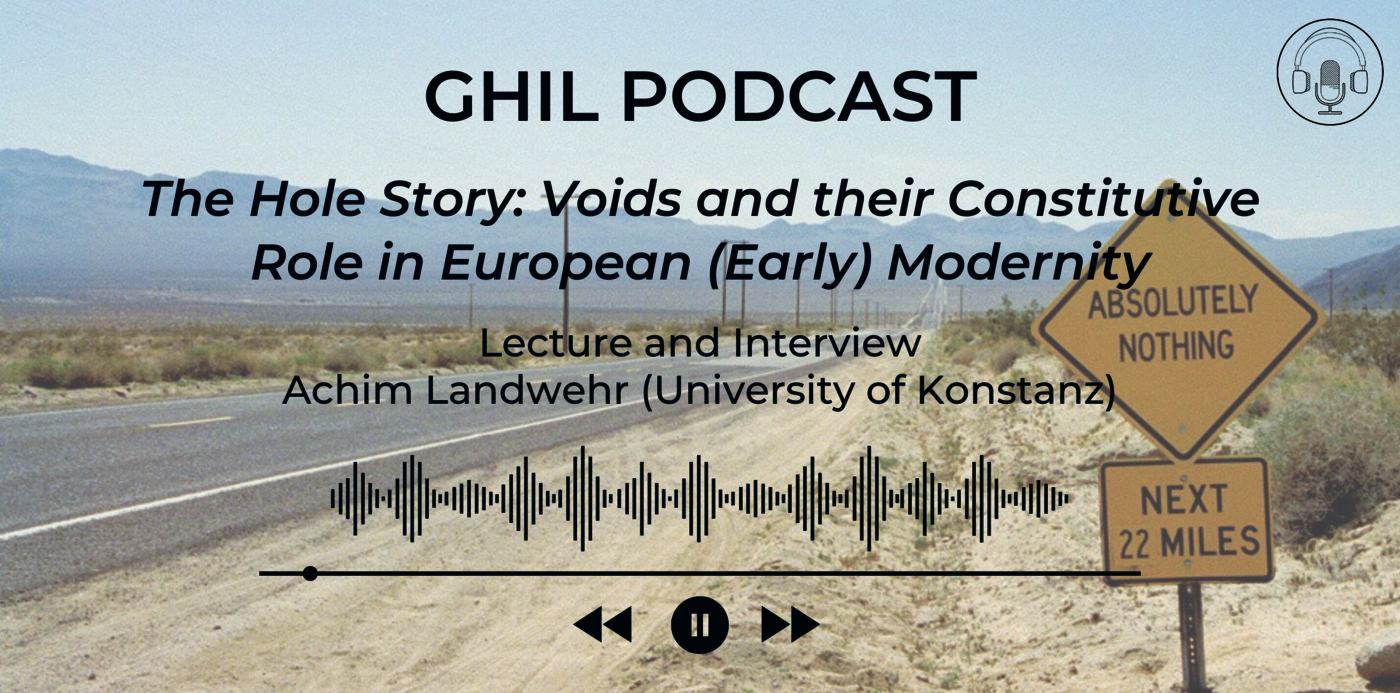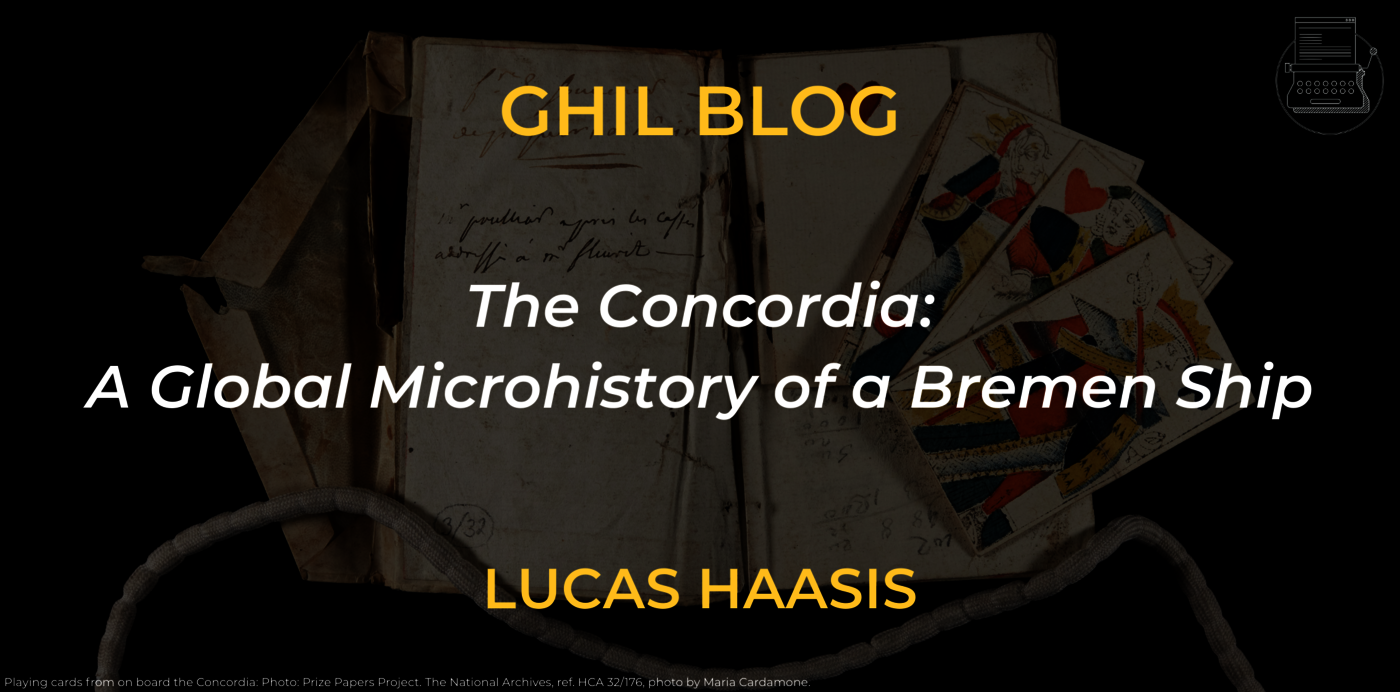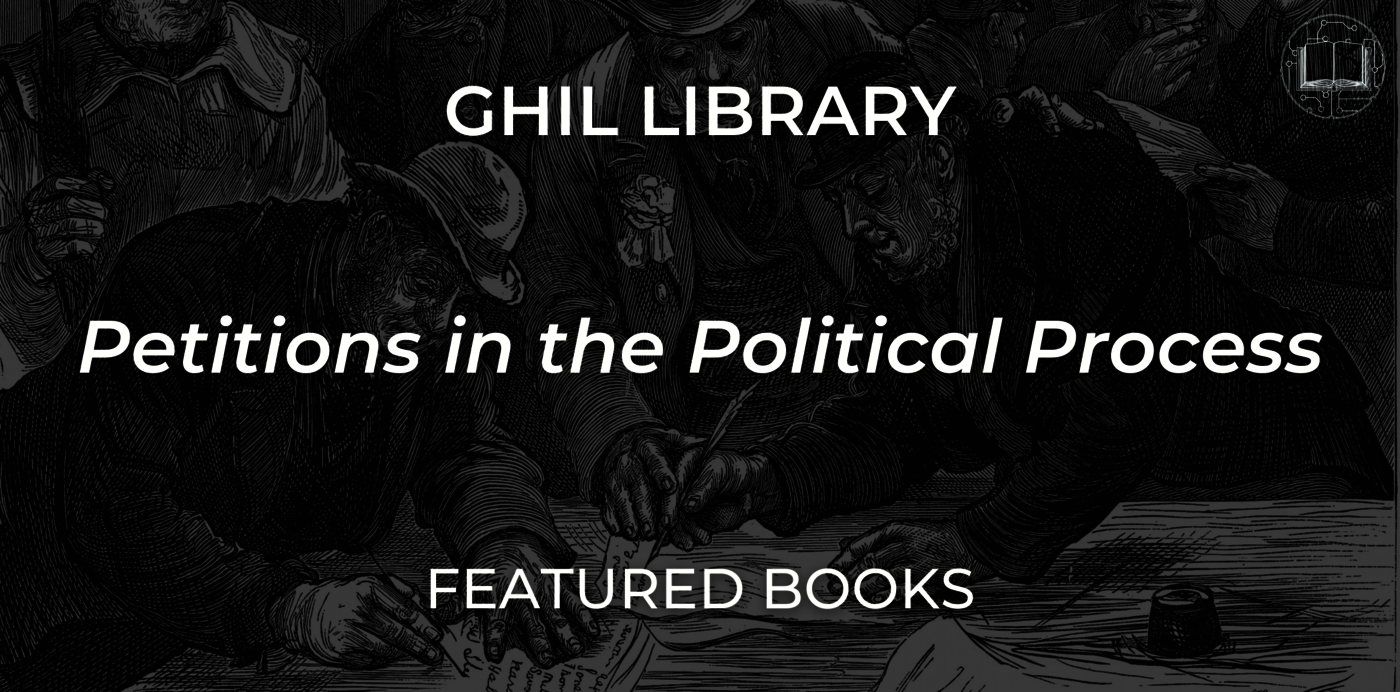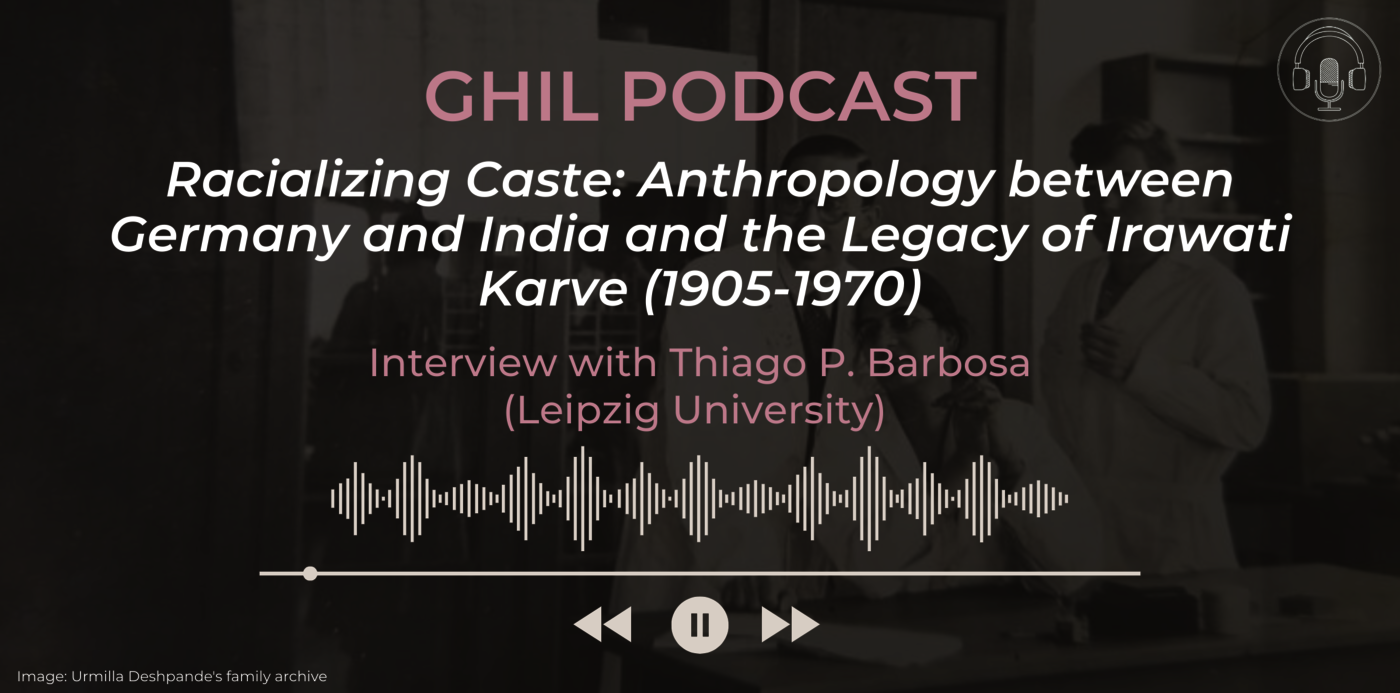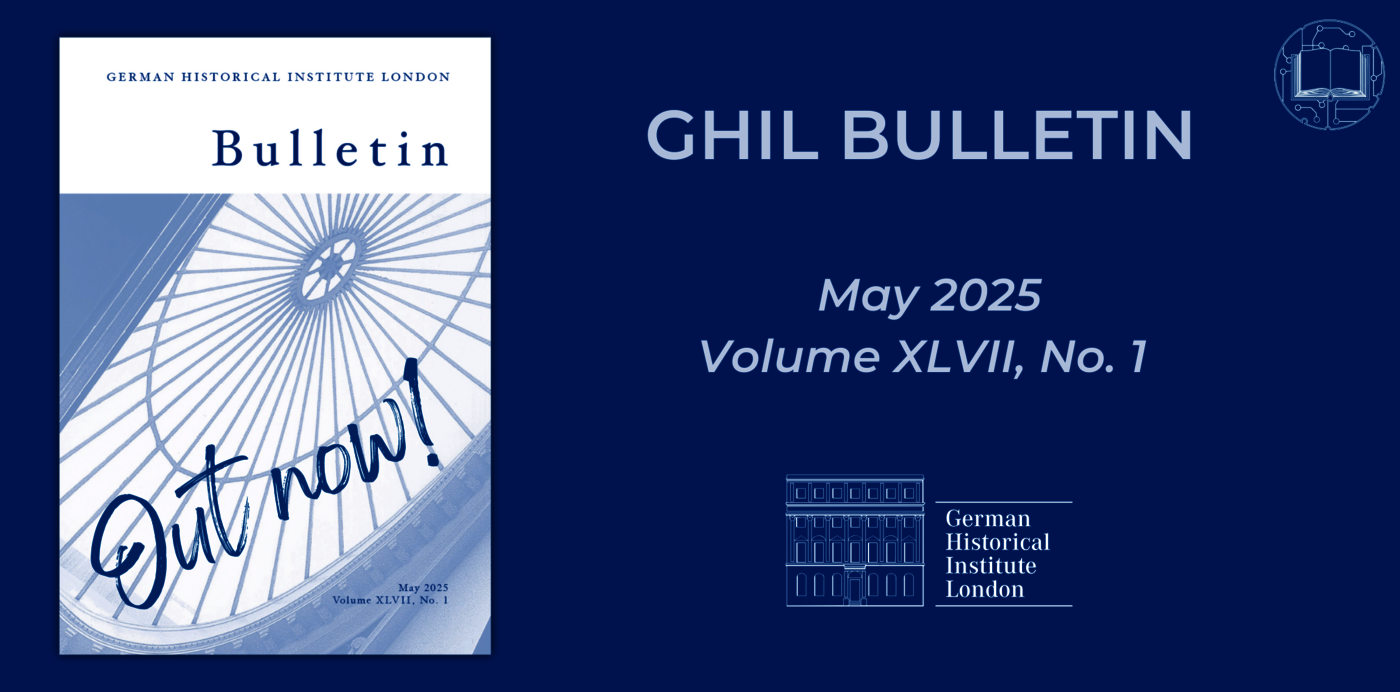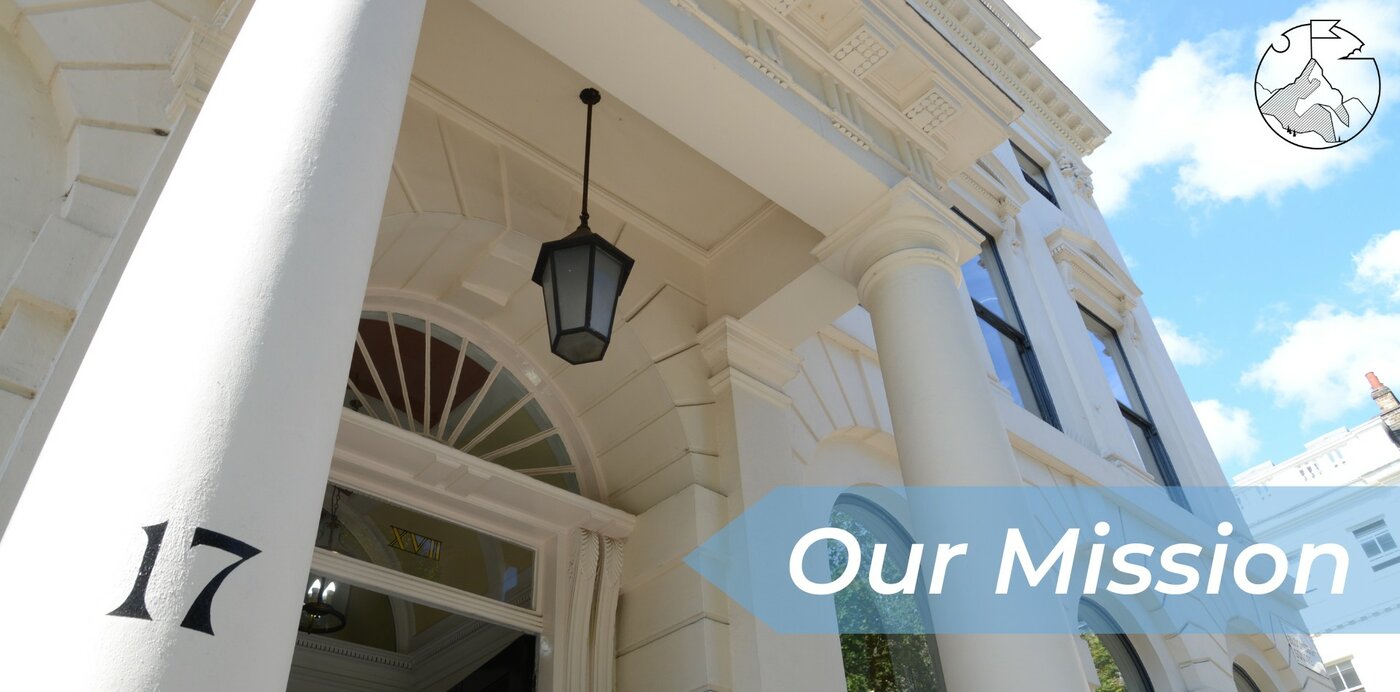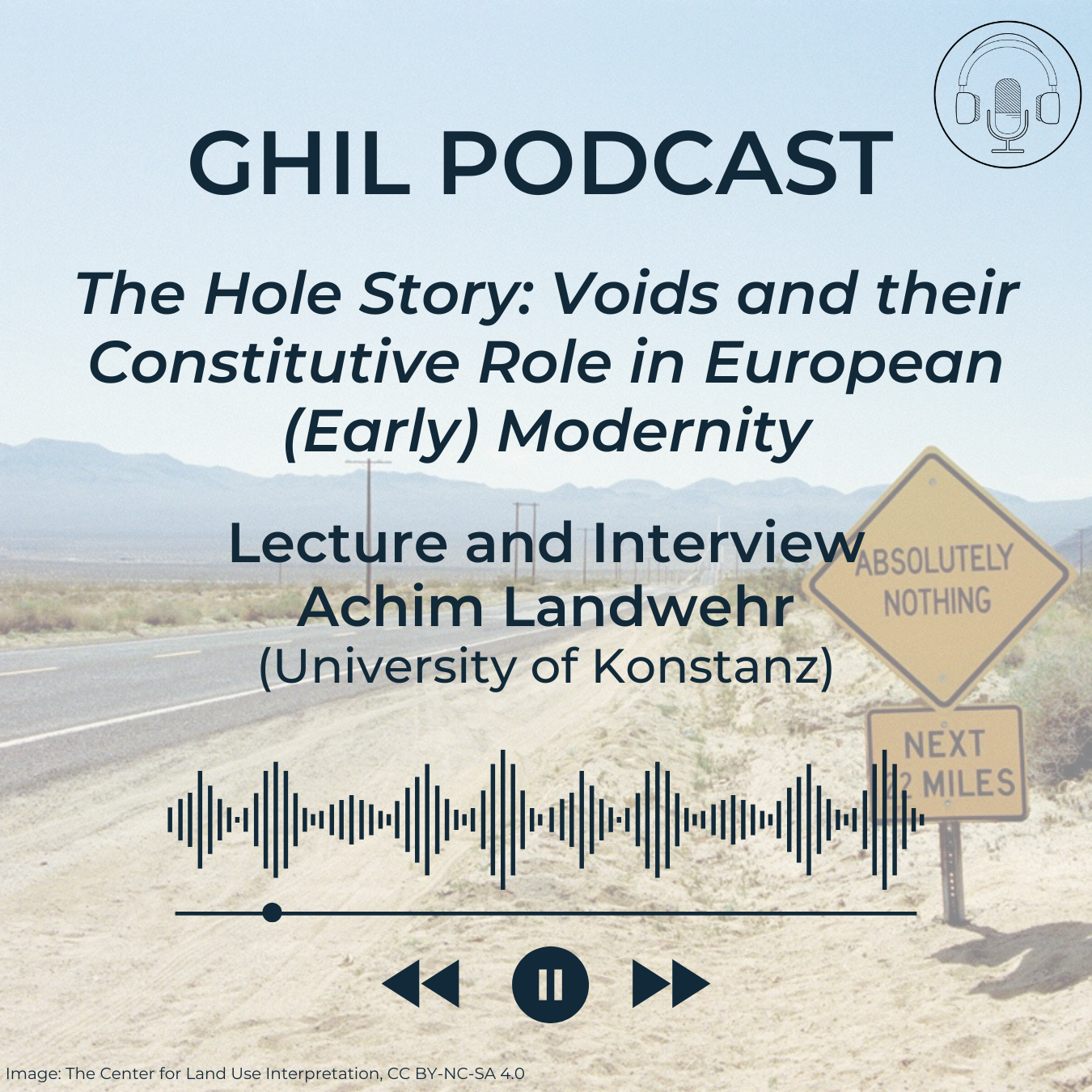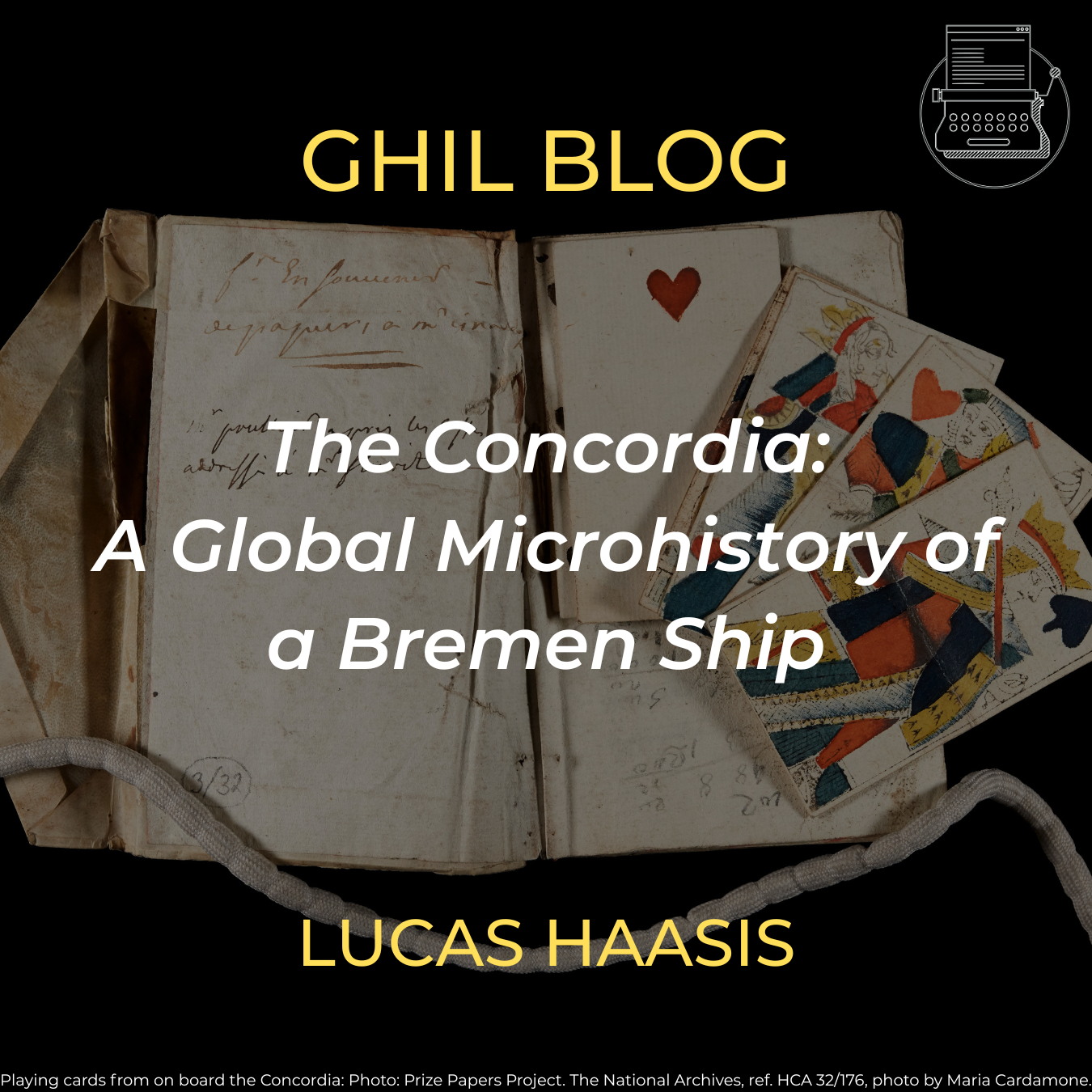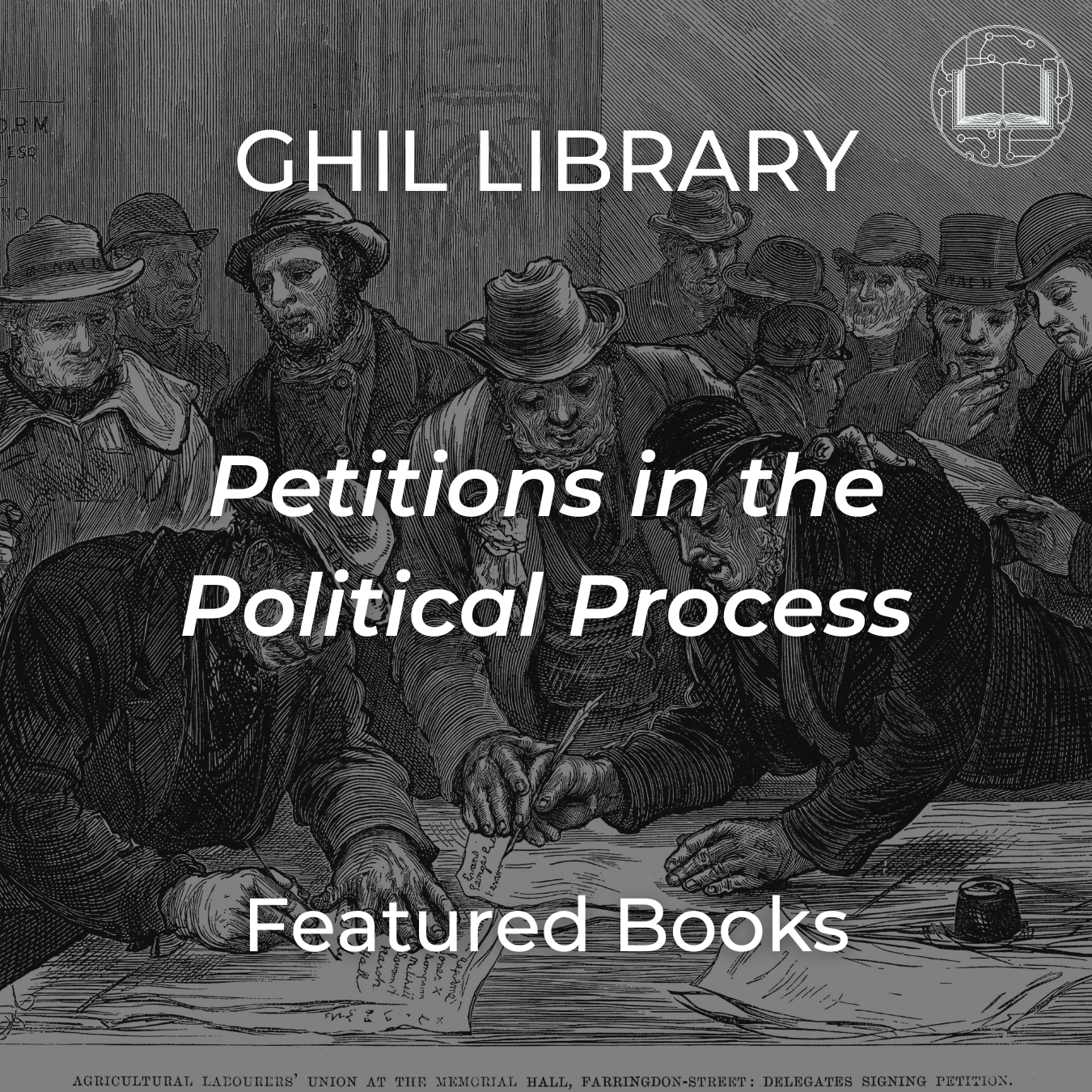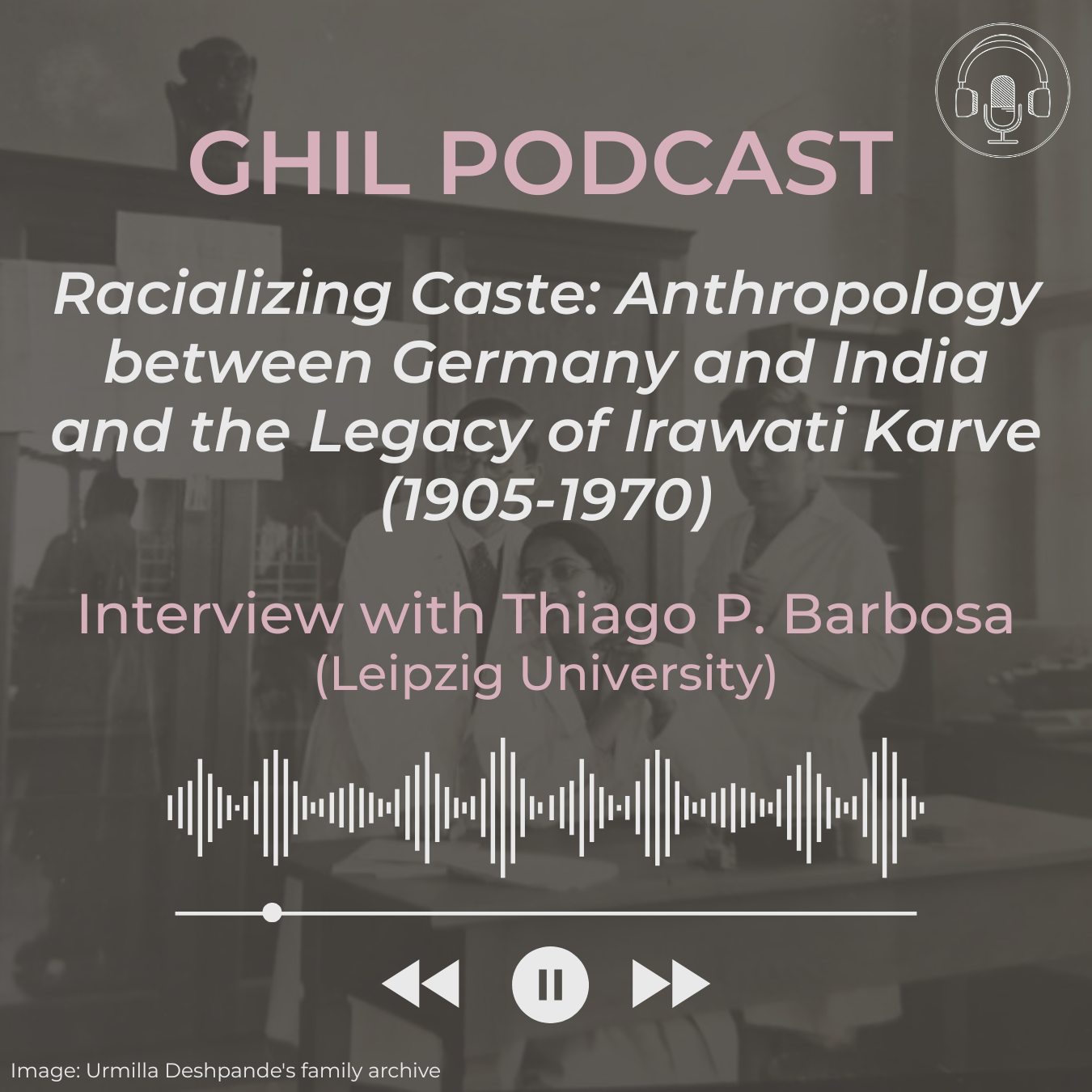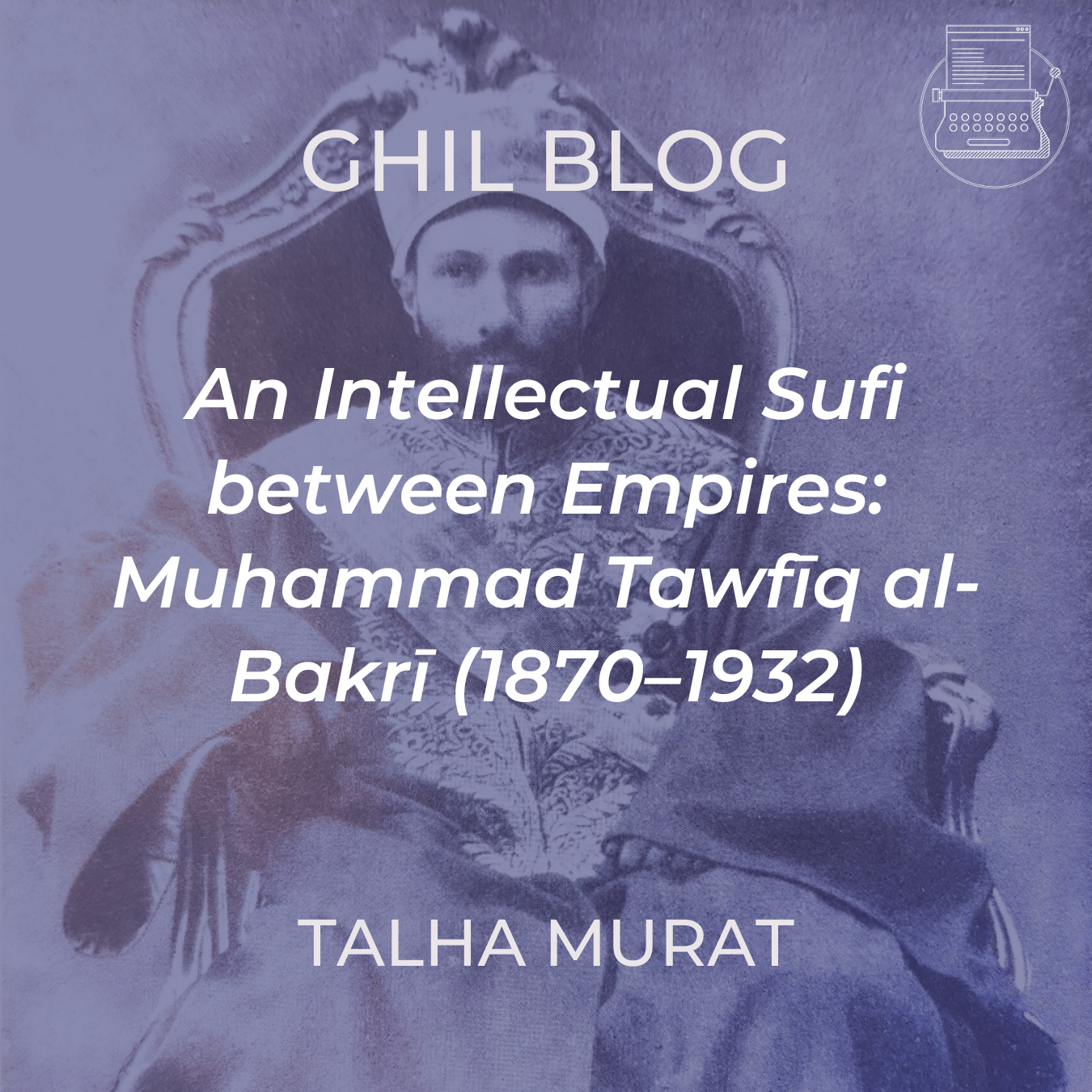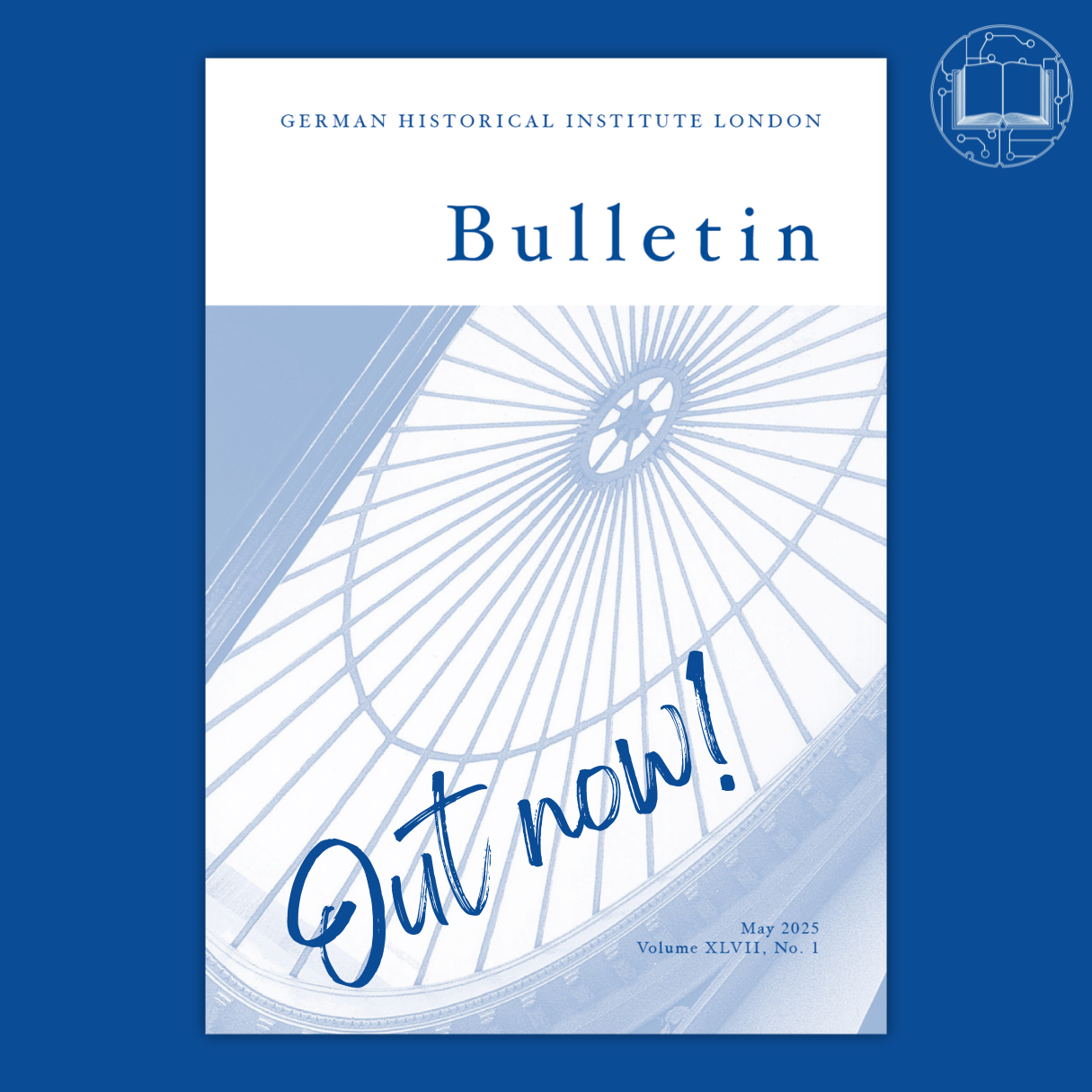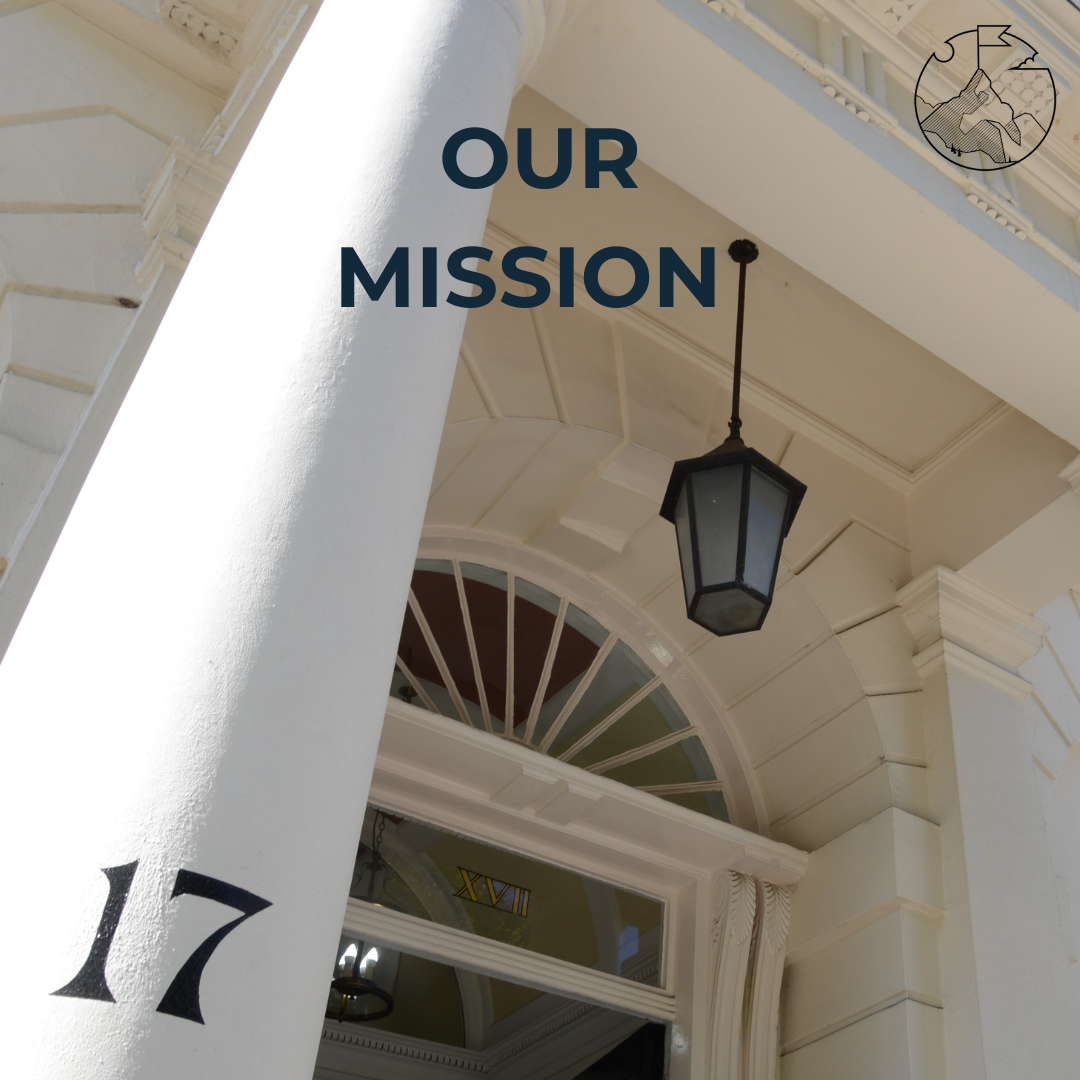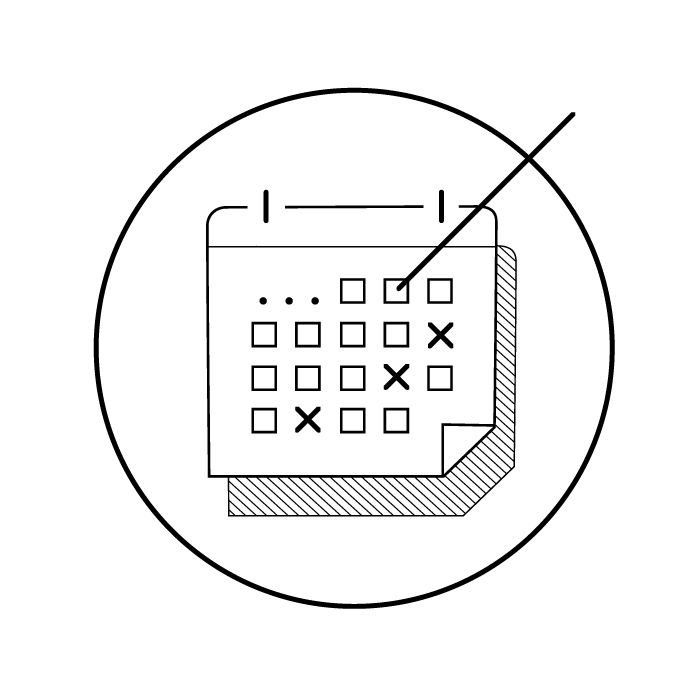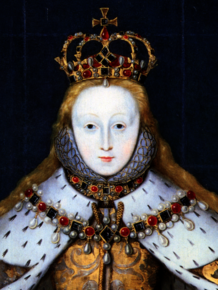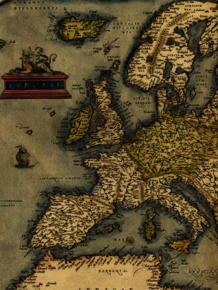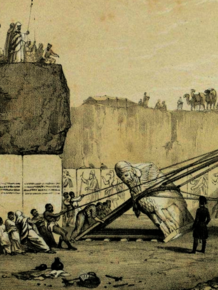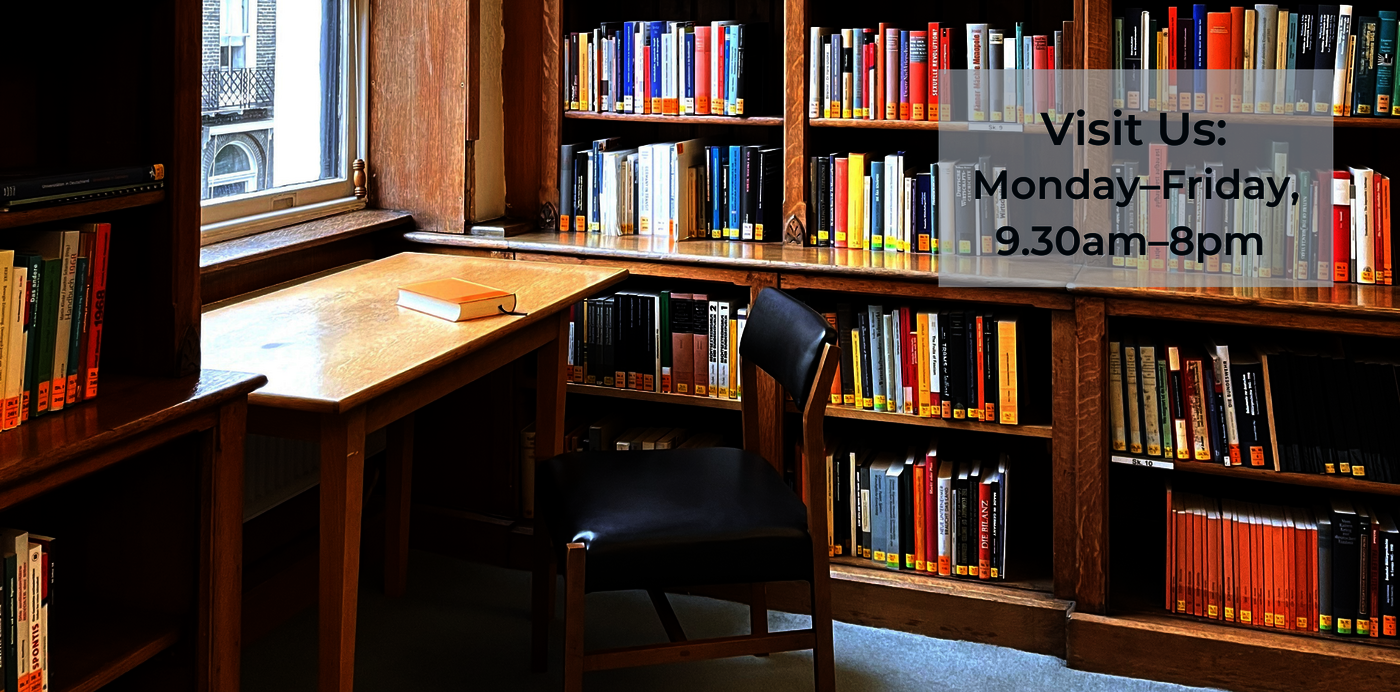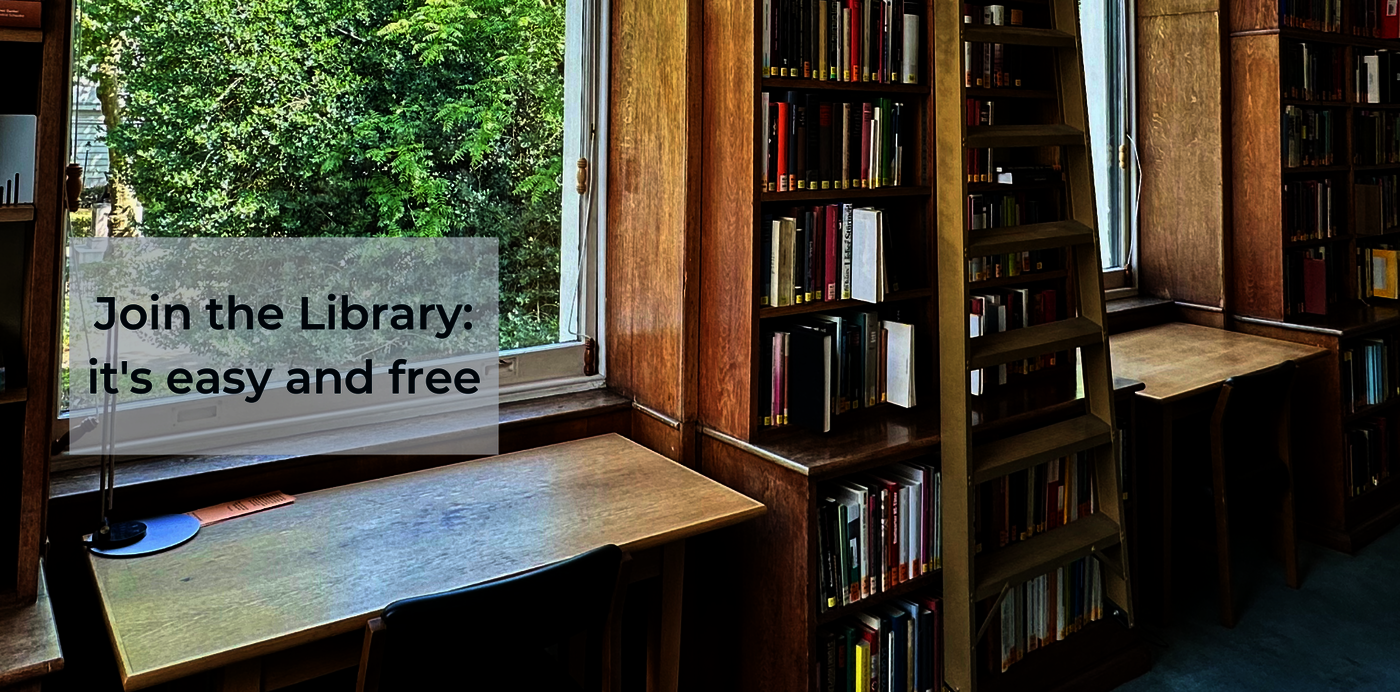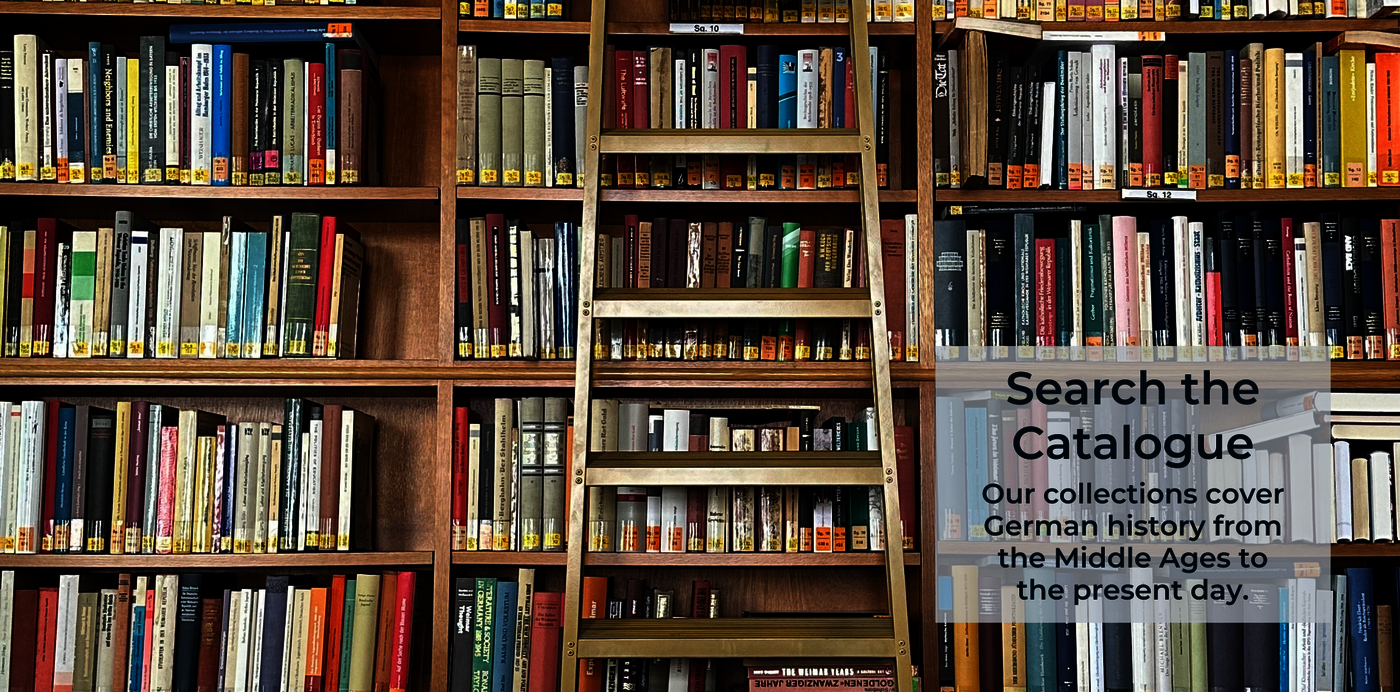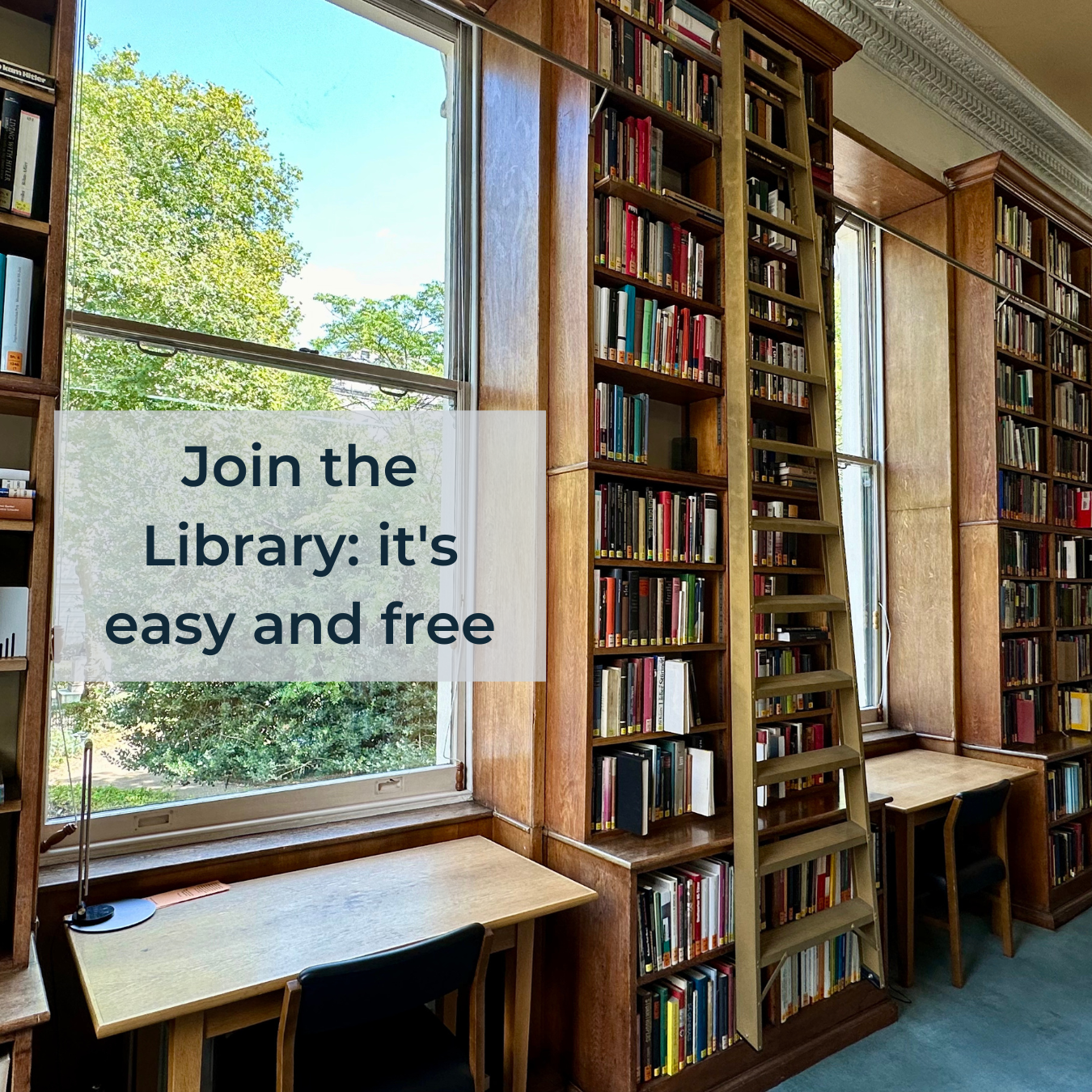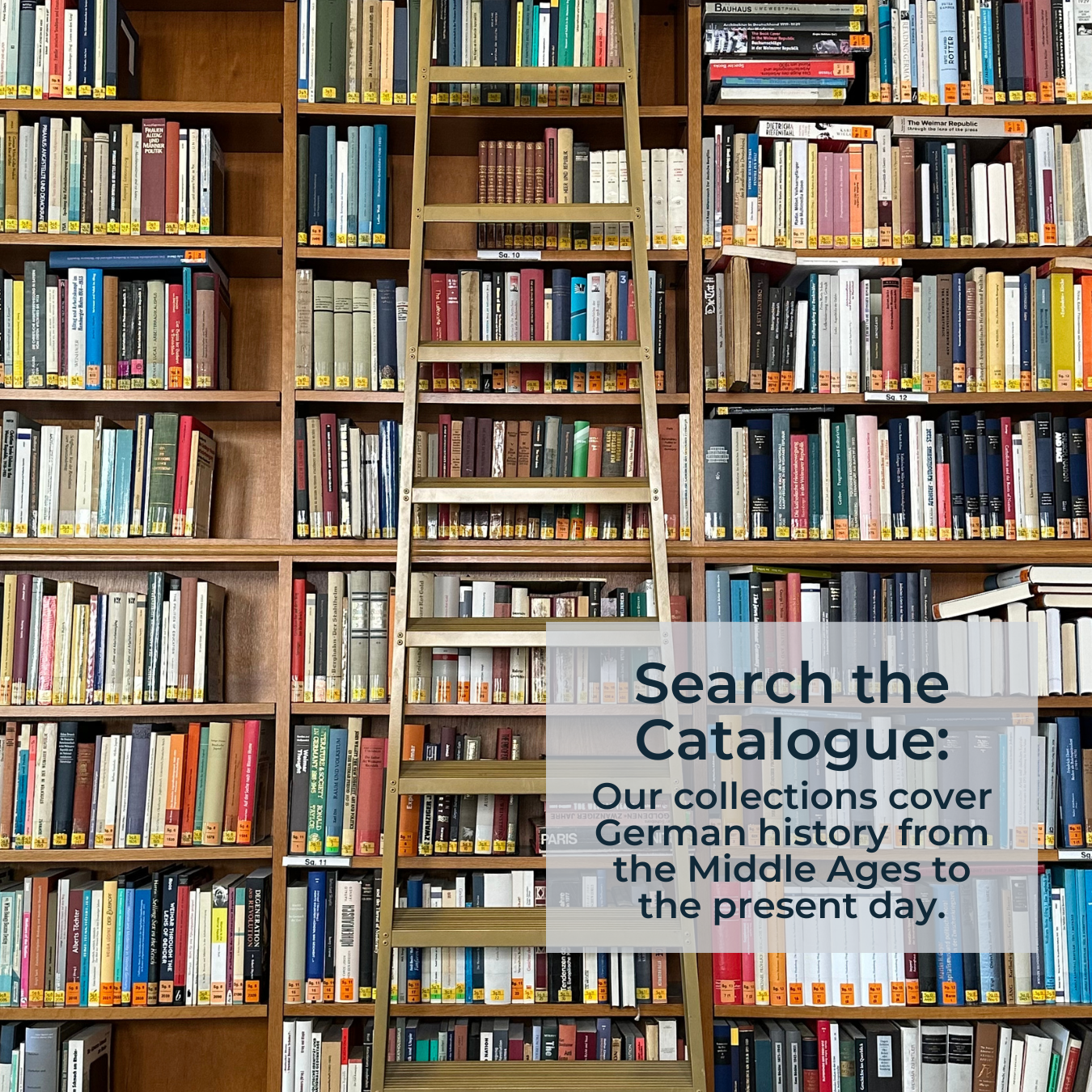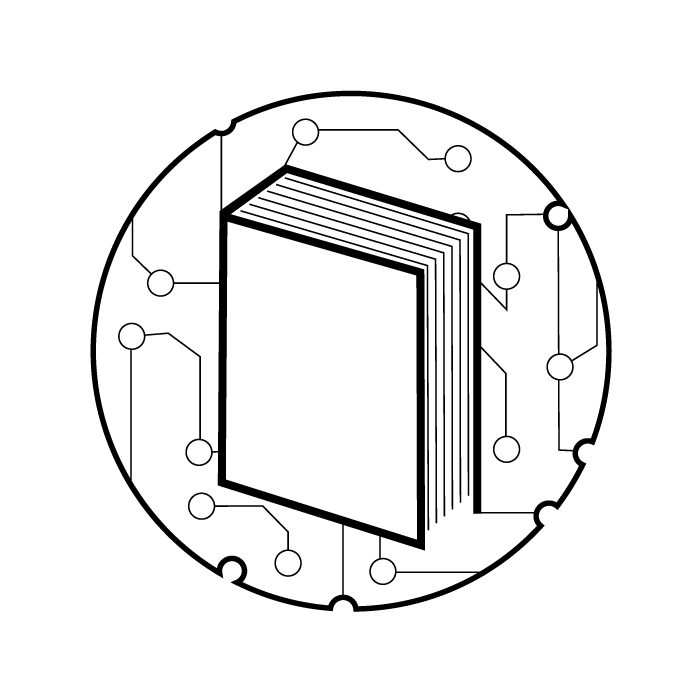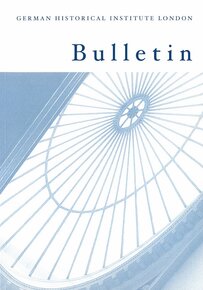German Historical Institute London
Library
Summer Opening Hours
The Library is open Monday-Friday, 9.30am-4pm.
New readers: please come in to register before 3pm
Publications
GHIL Bulletin May 2025
The new GHIL Bulletin is now available online (print copies to follow soon).
In this issue: articles by Paul Nolte (our current Gerda Henkel Visiting Professor) and Martin Deuerlein, many book reviews, and our Noticeboard with news on the Institute.
German Historical Institute London Bulletin, Vol. XLVII, No. 1 (May 2025)
Prizes
Prize of the German Historical Institute London 2025
The Prize of the German Historical Institute London is awarded annually for an outstanding Ph.D. thesis on German, British or British colonial history, British-German relations or British-German comparative history.
Deadline for applications: 31 July 2025
26 August 2025 (2pm)
GHIL Colloquium
Geena Carlisle and Claudia Roesch
Two talks
GHIL/Online
9 September 2025 (3.30pm)
GHIL Colloquium
Ute Kemmerling
Ajmer – ein muslimischer Pilgerort unter kolonialer Beobachtung in Britisch-Indien (1818-1947)
GHIL/Online
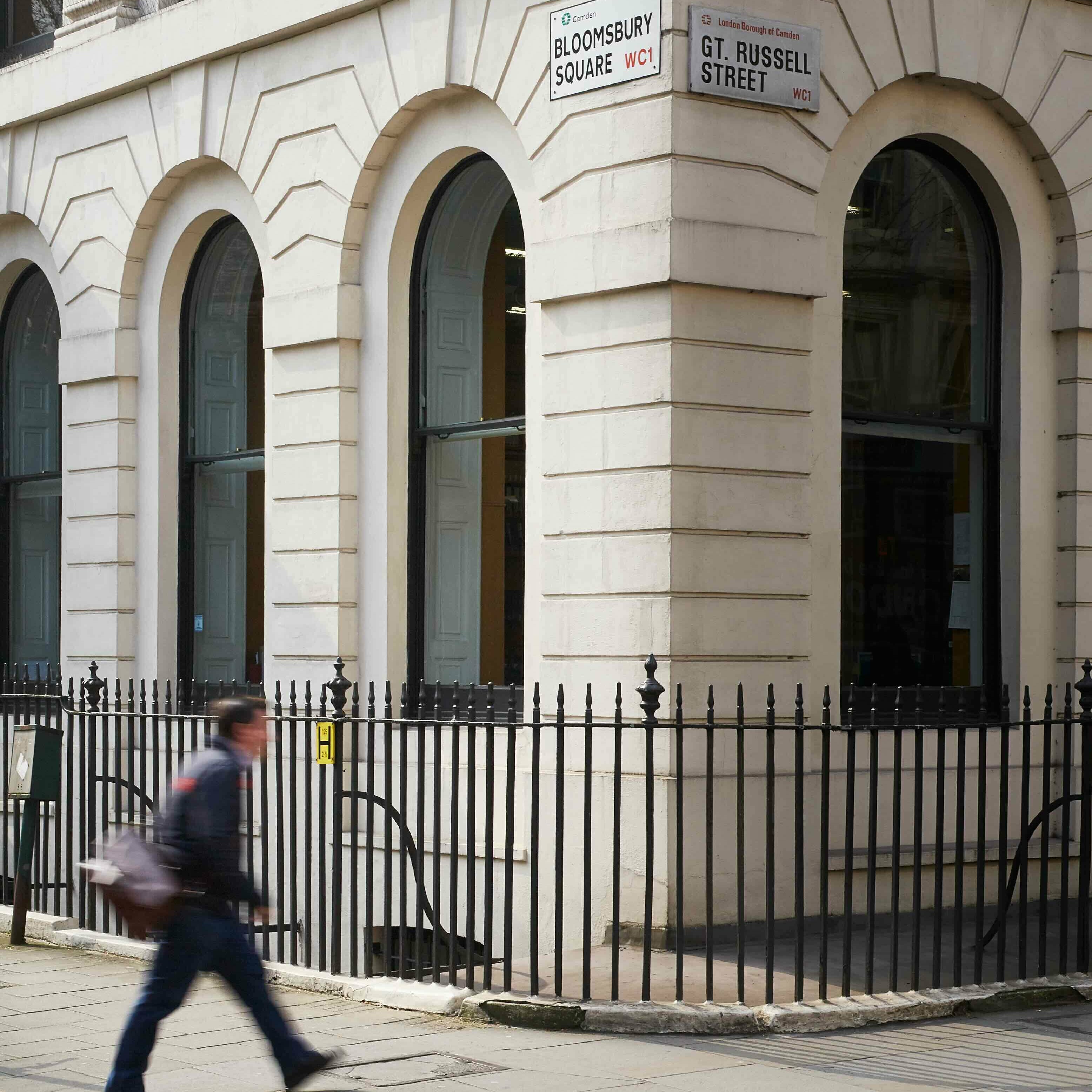
26 June 2025
Blogpost
Lisa Hellriegel
‘Woman’s Work’? What Debates about Policewomen in the Interwar Period Tell us about Contemporary Understandings of Sexual Violence
Category: Research, Scholarships
9 July 2025
Blogpost
Florian Balbiani
Knowledge Production between Mission, University, and Colonial Administration: Swahili Studies in Britain and Germany 1840s–1940s
Category: Research, Scholarships
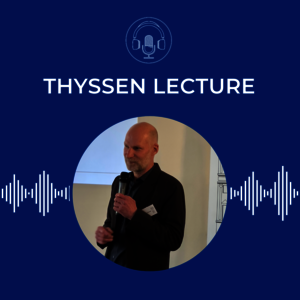
Thyssen Lecture
Sebastian Conrad
Colonial Times, Global Times: History and Imperial World-Making
1 May 2024
(0:50 h)
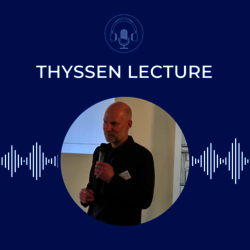
Thyssen Lecture
Sebastian Conrad
Colonial Times, Global Times: History and Imperial World-Making
Thyssen Lecture, given 15 May 2023
How do imperial legacies shape present-day academia and knowledge production? How are the colonial past, and obligations arising from it, debated today? What role do they play in political relations within Europe, and in Europe’s relations with the rest of the world? These are some of the questions we seek to address in our new 8-lecture-series in cooperation with the Fritz Thyssen Foundation on “Science, Knowledge and the Legacy of Empire”.
This podcast episode is a recording of the second lecture in the series given by Sebastian Conrad, Professor of Modern History at the Free University of Berlin, under the title ‘Colonial Times, Global Times: History and Imperial World-Making’.
Sebastian Conrad’s lecture explores how the construction of a particular, western notion of time and temporality, of modernity, was central to the constitution of western imperial hierarchies in Asia in the nineteenth and early twentieth centuries. Drawing on examples such as the alignment of calendars, the synchronisation of clocks and the writing of history, Conrad argues that, as producers of historical time narratives in the process of imperial ‘world-making’, historians became imperial agents and world-makers in their own right. But was this purely a colonial imposition, or a response to global conditions? What are the lasting effects of this reshaping of temporality, and how does it influence us today?
Sebastian Conrad is Professor of Modern History at the Free University of Berlin. His work has focused on issues of coloniality/postcoloniality, global history, intellectual history, the history of nationalism, and the theory of history. At the Free University he directs the MA programme ‘Global History’ and the graduate school in ‘Global Intellectual History’. Among his publications are What is Global History? (Princeton University Press, 2016); German Colonialism: A Short History (Cambridge University Press, 2012); An Emerging Modern World, 1750–1870(Harvard University Press, 2018, edited with Jürgen Osterhammel); and ‘Enlightenment in Global History’, American Historical Review, 117/4 (2012), 999–1027.
You can also read a publication of this lecture in Open Access.
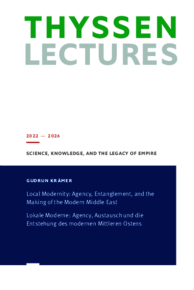
Gudrun Krämer
Local modernity: agency, entanglement, and the making of the modern Middle East
Lokale Moderne: Agency, Austausch und die Enstehung des modernen Mittleren Ostens
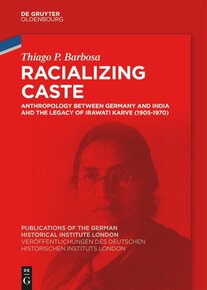
Thiago P. Barbosa
